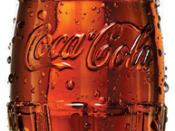69% of three all year olds know the golden arches of McDonald's. Half of all four year olds don't know their own name . Should we worry? Each and every day we are immersed in a swarming consumer culture without truly being aware of it. Are we really aware of our dependence on brands and branding, and how do the companies and corporations behind these brands seek to develop and cultivate them?
In order that I address this issue we must first establish our own definition of the term 'brand'. Brands are personifications of organizations, products, services and experiences. In this way they are the primary sources of relationships with customers, promises to customers, and customer loyalty.
The process of giving a 'name' or brand affiliation to a product has developed rapidly this century. Brand marketing grew alongside the consumer society, supported by the surge in consumer durables and the expansion of commercial television.
Branding gives consumers the assurance that their next purchase of a product will give them one which is virtually identical. Brand loyalty is created, and I hasten to add exploited by the manufacturer, through the tacit guarantee of quality and consistency.
Branding can take two main forms: multiple branding and multiple product branding. Multiple branding involves a firm using a range of brand names for its products. Rank Hovis McDougall for example, have a number of brands including Mr Kipling, Bisto, Mother's Pride and Hovis. Multiple brands allow the firm to develop brands for particular market segments. It also has the advantage that failure of one brand should not have a knock on effect on the others. Multiple product branding is where only one brand name is used for a range of products. Firms which use this method of branding include Kellogg's, Cadbury's and Sony.


